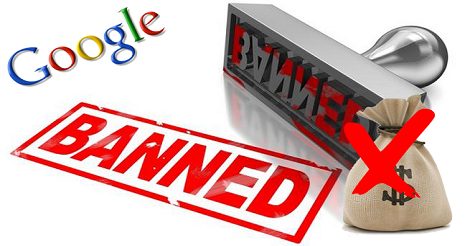
Google has quietly updated the Security Policies governing the search visibility of websites. With this latest update, websites serving advertisements from Bidvertiser, RevenueHits and other similar ad networks have been banned from Google Search results.
The other types of ads that Google cited earlier in February are the fake software update ads that don’t actually lead to the true site but scare people into thinking they are required to download updates, which actually installs malware.
Google has taken them on in their next phase of Safe Browsing.
CONSISTENT WITH THE SOCIAL ENGINEERING POLICY WE ANNOUNCED IN NOVEMBER, EMBEDDED CONTENT (LIKE ADS) ON A WEB PAGE WILL BE CONSIDERED SOCIAL ENGINEERING WHEN THEY EITHER:
- Pretend to act, or look and feel, like a trusted entity — like your own device or browser, or the website itself.
- Try to trick you into doing something you’d only do for a trusted entity — like sharing a password or calling tech support.

We were shocked to see “Deceptive site ahead” and “Reported Web Forgery!” warnings while accessing our website through the Google Chrome browser and Mozilla Firefox browser, respectively.

Typing our domain (www.kashmirpulse.com) in Google Search also proved the fact that our website has been excluded from search results as we couldn’t see it anywhere even after typing multiple keywords that made our website appear on the first page of the search.
After facing the problem, we headed straight to Google Search Console and saw a Malware Warning on the Dashboard.
At that moment, we doubted that the problem may have been caused by Revenue Hits’ ad scripts/codes. So, we removed the scripts and applied for a Malware Review in Google Search Console.
After waiting for about eight hours, we received an email from the Google Search Console team stating that the review has failed. It was disturbing!
At that time, we kept our trust in Infolinks and removed Bidvertiser ad scripts only. Yet again, we applied for a review. Hurrah! Our website passed the review. However, we lost our payments that were on hold with the two ad networks.

Our website started to appear in search results again after an hour or so from the time we received the email from the Google Search Console team.
Many of the less reputable ad networks use deceptive ads because they have a high accidental clickthrough and because nearly all of them download malware or adware onto the end user’s computer. So if you are running any ads like this, you need to be aware that your site may now be flagged with the red interstitial, warning searchers from clicking through to your site.
Now, we are testing different ad networks in order to test their compliance with Google’s updated policies. At the moment, Infolinks, BuySellAds and of course Google Adsense seem to pass the test. Media.net and Chitika are most likely to receive a thumbs up too.
Follow Us
The Kashmir Pulse is now on Google News. Subscribe our Telegram channel and Follow our WhatsApp channel for timely news updates!










